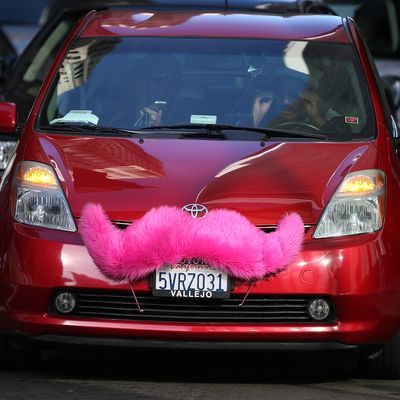
Back in January, an upstart taxi-hailing app called Gett accused dozens of employees of Uber — the 800-pound gorilla of modern car services — of effectively sabotaging it by ordering and then quickly canceling hundreds of orders, tying up the company’s drivers and making it harder for eager passengers to find a ride. Uber made a pro forma apology and chalked it up to an overly aggressive “sales tactic,” but the sense most got was that this was business as usual for the notoriously cutthroat company.
Uber is up to its tricks again, according to Lyft, which has released data showing that Uber employees have ordered and canceled more than 5,000 Lyft rides since last October.
According to CNNMoney, Uber’s sabotage of Lyft is even worse than what it did to Gett:
One Lyft passenger, identified by seven different Lyft drivers as an Uber recruiter, canceled 300 rides from May 26 to June 10. That user’s phone number was tied to 21 other accounts, for a total of 1,524 canceled rides. Another Uber recruiter created 14 different accounts responsible for 680 cancellations. A single account from a Los Angeles-based Uber representative canceled 49 rides from October through mid-April.
Lyft also accused Uber of recruiting its drivers by sending employees on short Lyft trips to pitch drivers on a switch. In response, Uber’s spokeswoman dodged the issue of the canceled rides, saying only: “We recently ran a program where thousands of riders recruited drivers from other platforms, earning hundreds of dollars in Uber credits for each driver who tries Uber.” (The company later denied the allegations, calling them “patently false.”)
Business ain’t beanbag, and Uber’s aggressiveness is certainly part of why investors have valued it at $18 billion. But those same investors can’t be happy if Uber really is stooping to sabotage tactics, especially when it’s already so much bigger and more powerful than any of its private-market competitors. Punching down isn’t pretty, even when it comes in the form of an app-tap.





























